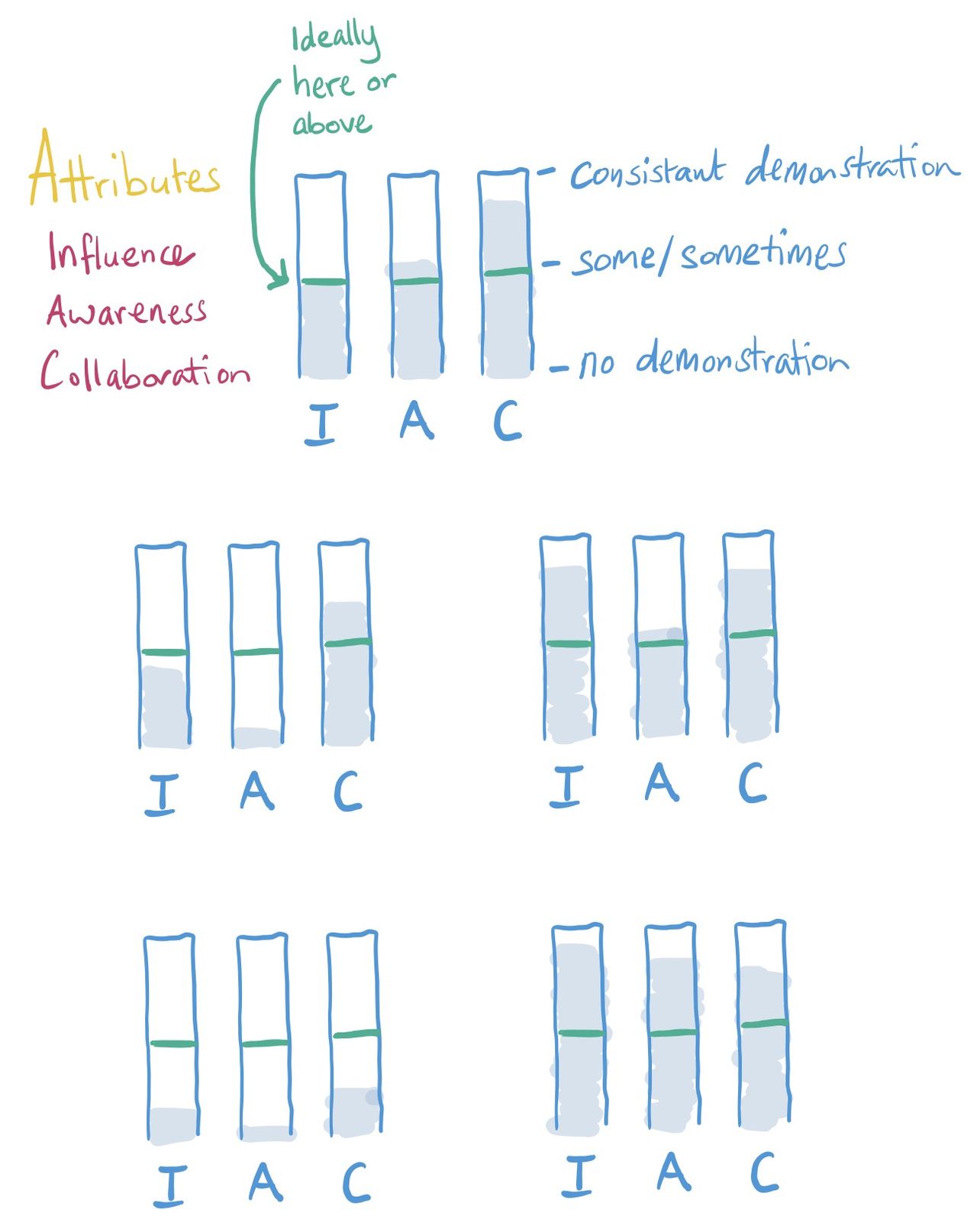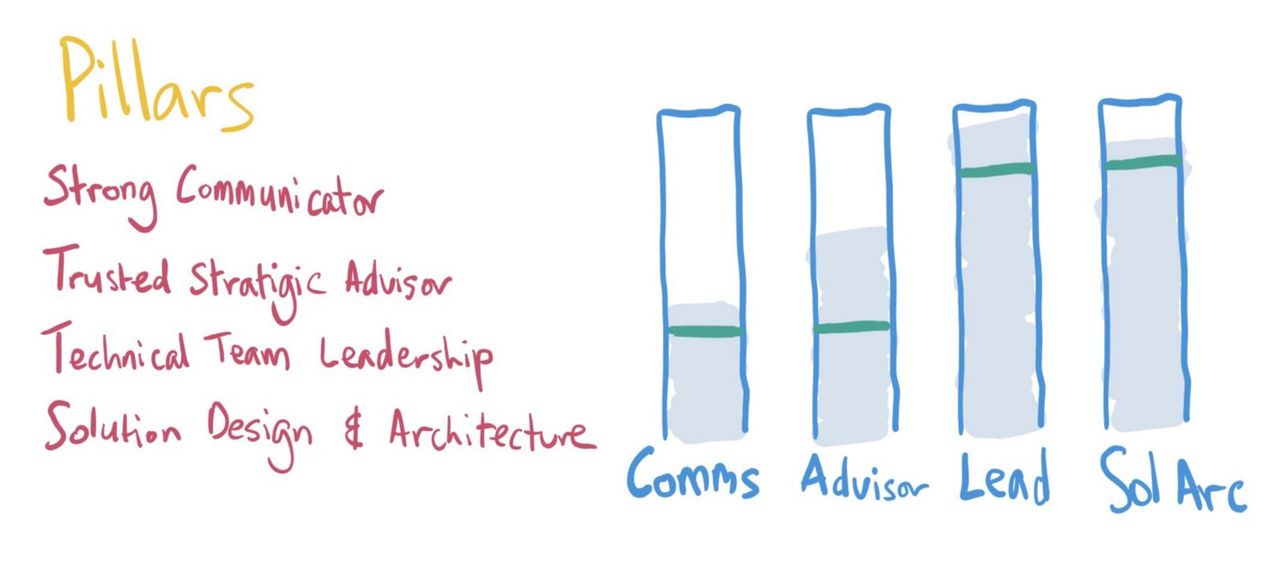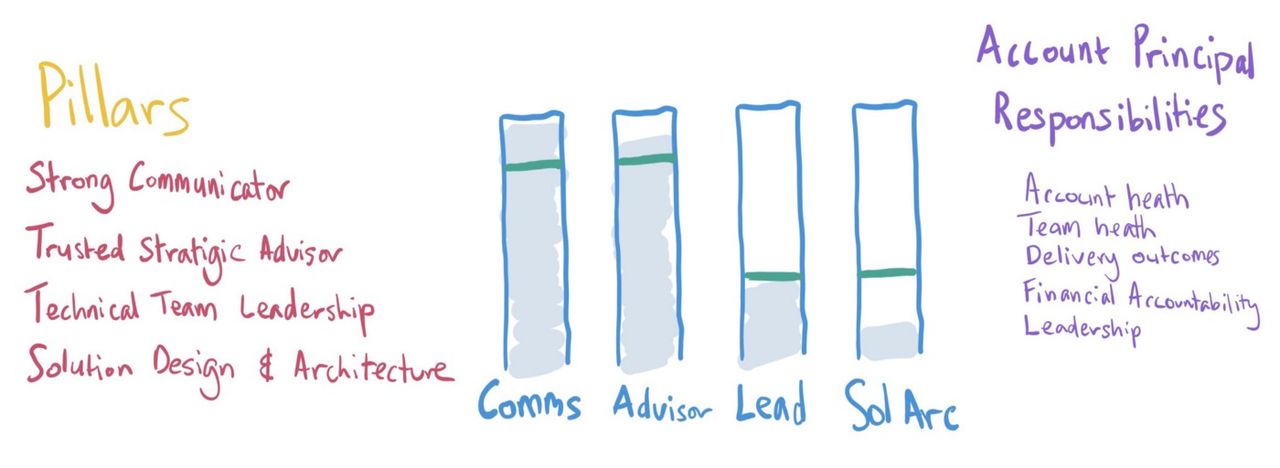How to Be a Technical Leader: The Principles Behind Successful IT Consulting
I have a love of technology, with a passion for optimizing both code and process. I also love to teach and for me that usually means pairing or getting in front of a whiteboard.
I’m currently playing the role of technical principal. You might know this role by another name, or you may notice its similarity to other roles (technical principal, account principal, technology evangelist, delivery lead, principal consultant, solutions architect, technical team lead, Agile transformation leader).
The reason why I say “playing the role” is because many technical or transformational leadership roles share the same DNA and have more cross-over than you might think.
In this article we’re going to explore three things:
- What makes a successful consultant
- What’s important for a technical principal role?
- What’s important for other leadership roles?
What Makes a Successful Consultant?
Often categorized as “soft-skills”, there are some basic “consulting-101” things that you’ll need to be a successful consultant.
As a consultant it is important to understand and harness these skills, and they’re particularly important in “principal” or “leadership” roles. The following isn’t meant to be an exhaustive list and people aren’t magically born with all these skills, so it’s best to treat them as a guide for self-improvement.
The attributes to look for in an IT consulting leader (principal) are:
- Influencing (conviction, empathy, able to rapidly build trust with their team and stakeholders)
- Awareness (situational awareness, reading a room, control)
- Collaboration (open, honest, respectful, servant leadership)
So what does a “successful consultant” look like? Are we expected to excel in all areas 100% of the time?
As it turns out these skills can be complicated to test for (especially in one hour interviews) however they tend to be easily demonstrated when the rubber hits the road.
Let’s visualize what we’re looking for:
Now we have some favorable attributes that we’re looking for and our consultants know what they should do more of. Each one of us is on our own journey and the key is to identify areas for improvement and start to demonstrate progress there.
Your company should support you in identifying areas to improve and provide mentorship as well as opportunities to grow and succeed.
Technical Leadership
I’m a technical leader; can’t I just stick to the tech?
Should technical leaders just focus on technology? In my opinion the answer is no, and the key is in the word leader.
As technical leaders (and this is especially true for those of us in consulting) our job is so much more than “hands on keyboard”. So while you can code and you might get your hands dirty from time to time, your primary role should be to support your team in making the best decisions they can at the time and getting out of their way while they work their magic (and for anyone that’s tried to do that, it’s harder than it seems).
Let’s have a look at what skills a technical principal might possess in addition to the above consulting skills that we expect every consultant to have.
We’re typically going to expect higher competency in “technical team leadership” and “solution design and architecture” from someone in a technical principal role. Skills like “strong communication” and “trusted strategic advisor” should also be demonstrated but it’s okay for some people in this role to have some growth in that area.
Pillars
The pillars mentioned above are:
Strong Communicator
- Awareness & influence
Trusted Strategic Advisor
- Empathy, can relate tech back to business value, understands the “why” of whatever we’re choosing to do, pragmatic & flexible
Technical Team Leadership
- Charism and experience in successful delivery
Solution Design & Architecture
- Passionate about technology and knows what good looks like; can be hands on but sees their primary role as supporting their team who are the real “doers”
Other leadership roles
As we mentioned at the start there are many roles that share similar DNA and they usually have the words “principal” or “leader” in them.
Let’s take a look at our pillars for a technical principal and apply them to a different leadership role for comparison. We’ll pick an “account principal” which is a role you might see from a consultancy—someone who’s responsible for the health of the account, successful delivery of outcomes and has accountability for the financials of an account…
Here we’ve used the same pillars due to the cross-over between roles but we’ve changed the “pass mark” to favor strong communication and being a trusted strategic advisor. We’ve also lowered our expectations around technical leadership and solution architecture (they’re nice to have and you may possess those skills in this role, but on larger accounts you’d expect to be able to pair with technical principals for those gaps).
Account principals are also more likely to be involved in the financial health of an account, client happiness and overall team health along with responsibility for the delivery outcomes. Smaller accounts may allow the flexibility to have one person play both roles, but as accounts get larger focus and the need for specialized skills becomes important.
The most successful accounts I’ve worked on have seen a strong partnership between these technical and account roles with less concern about who “should” be doing what and more focus on:
- How can we help each other
- How can we compliment our respective strengths/weaknesses
- How can we encourage personal growth within each other
What’s the Take Away?
For niche consulting in particular, there exists a fundamental set of “soft-skills” that are critical to a team’s success.
For anyone playing the role of “lead” or “principal” it’s important to bring these skills (and your experience) to the table as an asset that will help them through difficult situations, and as skills they can learn to improve themselves as individuals.
It’s important to have a whole-team understanding of what we need (and don’t need) from each role, and uplift each other by leaning on each other’s strengths rather than aiming for individual success.
So what’s the difference between roles like “technical principal” and other leadership roles?
Hopefully you’ll now agree—not as much as you originally thought.
We're always looking for new tech talent at Contino! If you want to join us, check out our current vacancies here.








